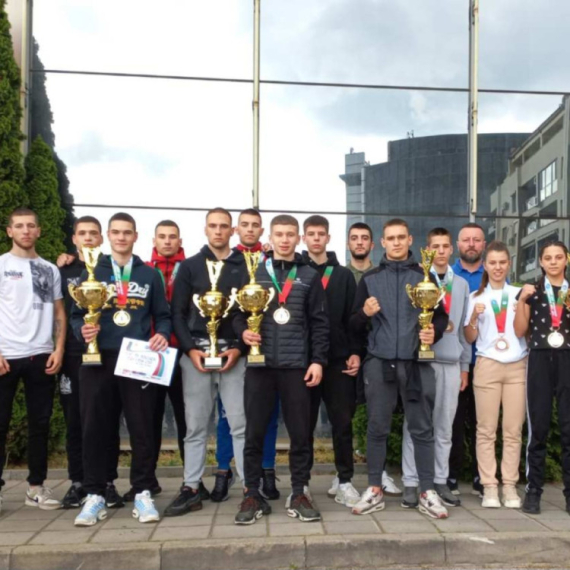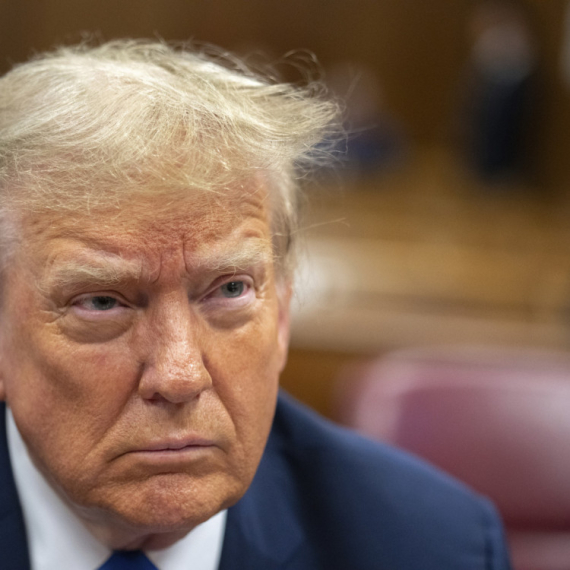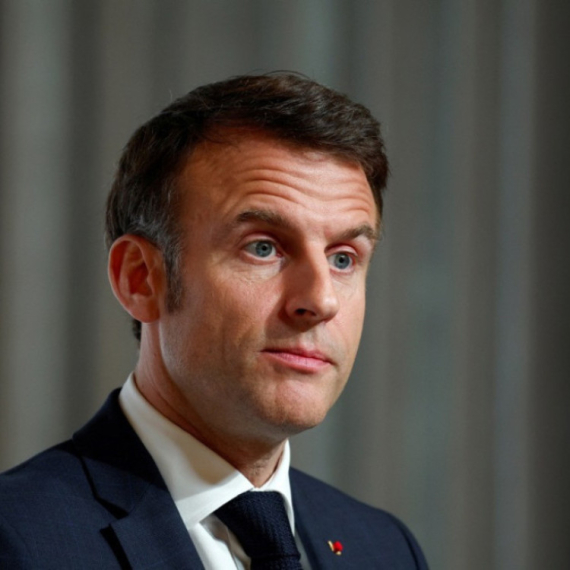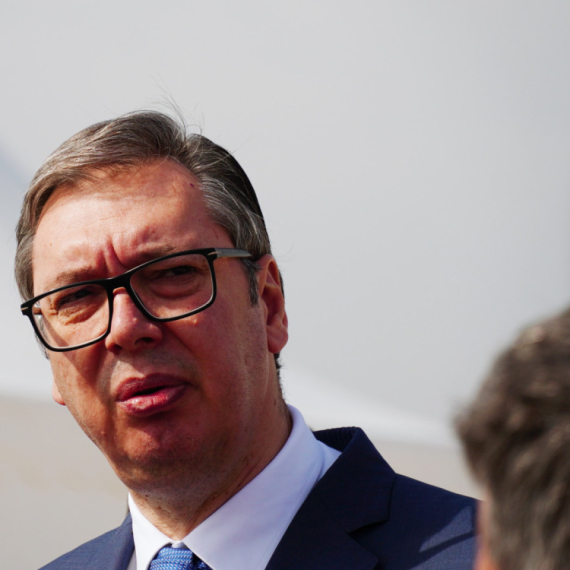"Ponoš dismissal was political"
A U.S. Balkans analyst believes that political reasons were behind Lt. Gen. Zdravko <a href="http://xs4.b92.net/eng/news/politics-article.php?yyyy=2008&mm=12&dd=30&nav_id=56085" class="text-link" target= "_blank">Ponoš's sacking earlier this week</a>.
Saturday, 03.01.2009.
21:21

A U.S. Balkans analyst believes that political reasons were behind Lt. Gen. Zdravko Ponos's sacking earlier this week. The chief of the general staff of the Serbian Army (VS) was dismissed by President Boris Tadic after a public row with Defense Minister Dragan Sutanovac. "Ponos dismissal was political" "As far as I know, Ponos was very isolated in the army, where many were against his efforts to reform the security sector. And what's even more important, Defense Minister Sutanovac was also objecting to such changes," history professor and Balkans expert Charles Ingrao told VOA. "When Ponos, after a long period of unsuccessful attempts to raise the issue of changes, went public and spoke about it, President Tadic found himself in a position where he had to choose between Ponos and the defense minister. Obviously the path of least existence prompted him to remove Ponos." According to Ingrao, this move indicates that the president's political position is weak. "Tadic is a much more complex person than many realize. On the one hand, he is the face of changes, of democratization and efforts to reintegrate Serbian into Europe, but he is a much more cautious person than the liberals and the western Europeans wish. He's certainly no Zoran Djindjic," Ingrao believes. "He is aware of the fact the Democratic Party is not united. He is still wary of former Prime Minister Vojislav Kostunica and democrat-nationalists, who wish to take over his electorate base. In other words, in the eyes of many, he is not a bold politician and is therefore taking insufficiently energetic steps toward reforms and democratization of the country." However, this analyst also warned that Serbia's political environment is objectively limiting Tadic's maneuvering space, and added that whoever succeeds Ponos will face the same resistance to the security sector reforms. "There's no 'Obama' to take over the post of new chief of the general staff and whom everyone would bow to. Because, the problem is not in any individual, but in the structures, as well as the Serb public, which it seems neither demands nor supports a fundamental reform of the army and security services, nor bringing General Mladic to justice," Ingrao said, adding that for this reason, the question remains of whether Tadic can exert pressure to speed up reforms when most Serbians do not support them. The U.S. analyst concluded by saying that Serbia "still has a long road ahead toward European integrations and full democracy". It's political: A file photo of Ponos and Tadic (Tanjug)
"Ponoš dismissal was political"
"As far as I know, Ponoš was very isolated in the army, where many were against his efforts to reform the security sector. And what's even more important, Defense Minister Šutanovac was also objecting to such changes," history professor and Balkans expert Charles Ingrao told VOA."When Ponoš, after a long period of unsuccessful attempts to raise the issue of changes, went public and spoke about it, President Tadić found himself in a position where he had to choose between Ponoš and the defense minister. Obviously the path of least existence prompted him to remove Ponoš."
According to Ingrao, this move indicates that the president's political position is weak.
"Tadić is a much more complex person than many realize. On the one hand, he is the face of changes, of democratization and efforts to reintegrate Serbian into Europe, but he is a much more cautious person than the liberals and the western Europeans wish. He's certainly no Zoran Đinđić," Ingrao believes.
"He is aware of the fact the Democratic Party is not united. He is still wary of former Prime Minister Vojislav Koštunica and democrat-nationalists, who wish to take over his electorate base. In other words, in the eyes of many, he is not a bold politician and is therefore taking insufficiently energetic steps toward reforms and democratization of the country."
However, this analyst also warned that Serbia's political environment is objectively limiting Tadić's maneuvering space, and added that whoever succeeds Ponoš will face the same resistance to the security sector reforms.
"There's no 'Obama' to take over the post of new chief of the general staff and whom everyone would bow to. Because, the problem is not in any individual, but in the structures, as well as the Serb public, which it seems neither demands nor supports a fundamental reform of the army and security services, nor bringing General Mladić to justice," Ingrao said, adding that for this reason, the question remains of whether Tadić can exert pressure to speed up reforms when most Serbians do not support them.
The U.S. analyst concluded by saying that Serbia "still has a long road ahead toward European integrations and full democracy".


























































Komentari 0